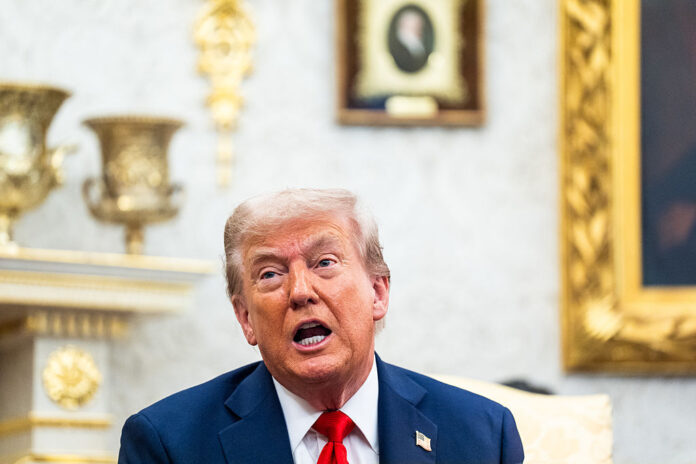As President Donald Trump signals a possible National Guard deployment to Baltimore, residents are deeply divided over whether the city’s sky-high crime rates warrant military-style intervention — or if it’s a dangerous overreach that could inflame tensions.
Trump has described Baltimore as a “hellhole” alongside Chicago and Washington, D.C., declaring, “We have a right to do it because I have an obligation to do it to protect this country, and that includes Baltimore,” according to Fox News.
His statement comes as the White House weighs sending troops to Maryland’s largest city if Gov. Wes Moore requests assistance — echoing recent federal action in D.C.
On Wednesday, Fox News Digital spoke to 17 Baltimore locals, many of them from Penn-North, ground zero for several of the city’s recent crises, including a mass overdose event in July that hospitalized more than two dozen people, and three of the seven homicides reported in August occurred in nearby Park Heights.
Standing outside the Department of Social Services, a young mother named Tasha, pushing her baby in a stroller, didn’t mince words:
“Yes, I do, because right now our city needs it. Baltimore is on fire right now. We need as much help as we can get.”
Joseph, a longtime Penn-North resident, said his front stoop is often used as a bed by the homeless, adding:
“I think it would make it a lot better.”
Local radio host Daren Muhammed called Penn-North “ground zero” and emphasized:
“All options should be placed on the table and made available.”
Anthony, who’s lived in Baltimore for three decades, welcomed federal assistance:
“My feeling is if the federal government’s offering help, one’s foolish to turn it down.”
But not everyone agrees. Mayor Brandon M. Scott pushed back hard this week, citing “historic reductions in violent crime” and Baltimore’s lowest homicide rate in 50 years — 91 homicides and 218 nonfatal shootings so far in 2025, down 29.5% and 21% respectively.
“We’re good; we don’t need or want the National Guard here in Baltimore,” Scott said.
Gov. Wes Moore echoed the stats and even extended an invitation to Trump for a public safety walk-through. Trump responded:
“As President, I would much prefer that he clean up this crime disaster before I go there for a walk.”
Still, nonprofit research from Just Facts reveals Baltimore’s 2024 murder rate was 6.8 times the national metropolitan average. If unchanged, 1 in every 38 Baltimoreans will eventually be murdered.
Sarah, a homeless woman who admits she’s battling addiction, rejected the idea:
“I don’t think they need to bring the troops in. I think that is going to get an uproar. It’s going to start a riot.”
“We’re not in a war zone.”
Trayvon, outside the CVS Pharmacy in Penn-North, put it bluntly:
“The National Guard is not going to change s–t in a rebellious city that ain’t been shown love in forever.”
Others cited the trauma of 2015, when the death of Freddie Gray in police custody sparked riots and the National Guard was deployed.
“I think psychologically it’s not probably best for people who probably still haven’t healed,” said Ashley, a resident of Bolton Hill.
“The day when the people cannot control themselves and cannot police themselves will be the end of everything,” another woman in Bolton Hill said. “That’s what we are seeing right now. Nobody will save us – not the National Guard, not the police.”
Ronette, also outside Social Services, was blunt:
“We don’t need Trump coming in the door.”
Some saw it as political theater.
“A stunt,” said George, while a masked woman in Bolton Hill warned a deployment would “raise tensions much higher than they already are.”
Will Hanna, a combat veteran, said he supports federal help but not troops.
“I think there are some resources that we haven’t exhausted as a city and as a state. I think that we still can bring the state troopers here.”
As Trump continues to press for federal intervention in Democrat-run cities, Baltimore becomes the latest political flashpoint in his broader campaign for “law and order.”
But on the ground, amid boarded-up businesses, crime scenes, and shuttered hope, the debate is far from settled. The question now: Will federal troops restore order — or ignite the next chapter of unrest?
IJRIJR


